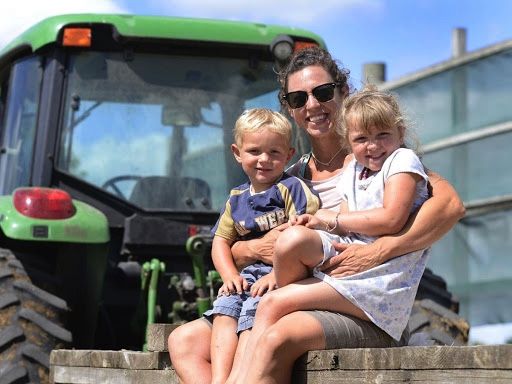
“Spring Into Conservation!” workshop on April 7 from 12 to 1:30pm. The virtual event aims to connect female farmers and landowners in Marathon, Portage, Shawano and surrounding counties who are interested in learning more about land stewardship or in sharing their own expertise. All interested women are welcome. The live Zoom will feature a presentation on soil health by Jamie Patton, UW Extension, and Amy Neigum, District Conservationist from Marathon County USDA’s Natural Resource Conservation Service. Registration is open until April 6 at www.wiwic.org.
The April Zoom event will also feature local Conservation Coaches who will mentor women landowners who want to learn more about land, water and wildlife stewardship, and sustainable or regenerative agriculture practices. WiWiC Conservation Coaches include: Rachel Bouressa of Bouressa Family Farm in New London, Stacey Botsford of Red Door Family Farm in Athens, Patti Schevers of Schevers Farm outside of Green Bay, and Valerie Dantoin, a organic dairy farmer from Seymour.
“I believe that as farmers, we have an incredible role and responsibility to be stewards of the land. The land is not ours to own, but ours to care for for a small duration of its time,” said Bouressa. “Agriculture comprises 40% of land use in Wisconsin, and likewise across the country. We as farmers have a great deal of power to impact and improve our environment, our rural communities, the nutritional value of the food we produce, as well as our own happiness and quality of life.”
WiWiC Conservation Coach Rachel Bouressa, of Bouressa Family Farm, takes her kids into the fields at her grazing operation in New London. She’s converted the family dairy farm to a 100% grass-fed and finished herd of British White Park Cattle. Livestock are on pasture year-round, managed with daily moves during the growing season and fed round bales on pasture during the winter months. Bouressa uses a holistic approach focused on diversifying and incorporating permaculture practices. “I believe that as farmers, we have an incredible role and responsibility to be stewards of the land. The land is not ours to own, but ours to care for for a small duration of its time. Agriculture comprises 40% of land use in Wisconsin, and likewise across the country. We, as farmers, have a great deal of power to impact and improve our environment, our rural communities, the nutritional value of the food we produce, as well as our own happiness and quality of life.”

